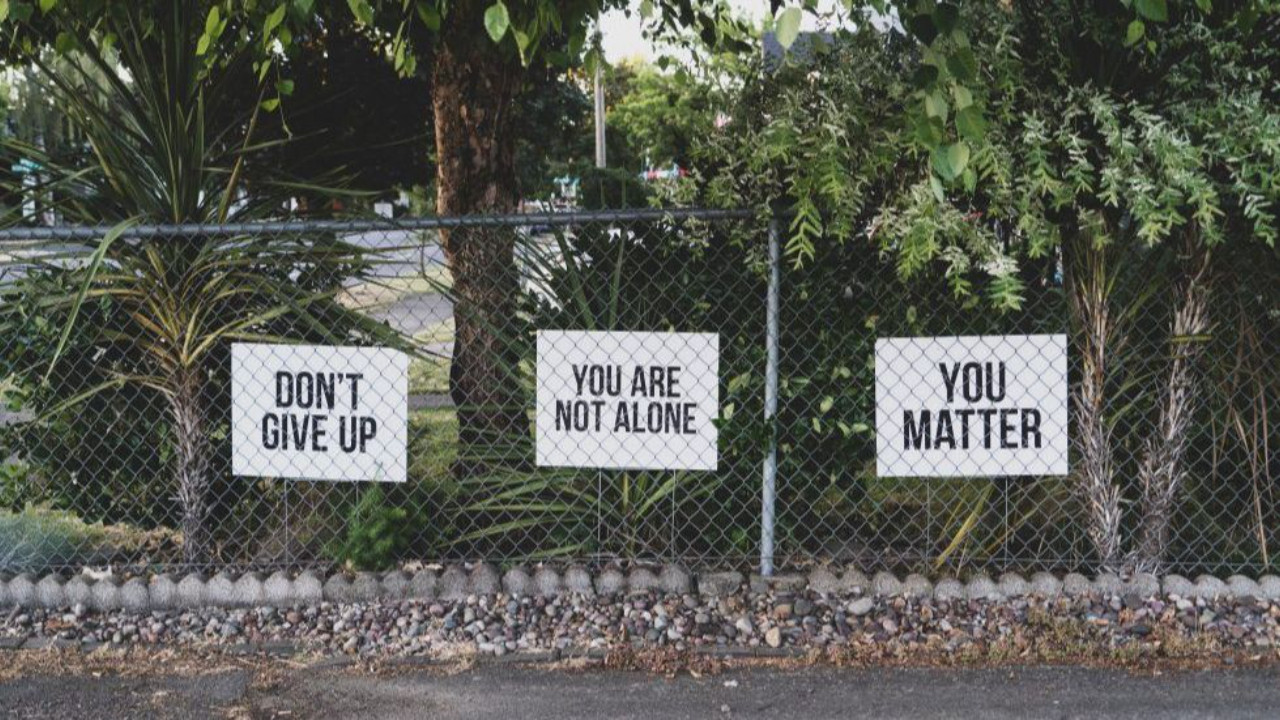HOW TO SUPPORT SOMEONE STRUGGLING WITH MENTAL HEALTH
Sep 06, 2022
You: How are you?
Jen: Well… (starts crying)
You: (thinking) Oh no… Jen is crying and talking about being depressed and overwhelmed. All I asked is “how are you?” Now, what do I do? I don’t know what to say!!
Have you ever had a conversation like that?
With mental health impacting 1 in 5 people it is very likely that you are going to talk to someone who is struggling. Or this scenario may already be very familiar to you.
You want to help, but have no idea what to say and you surely don’t want to make it worse.
Here’s good news.
You don’t need a degree or personal experience to support those with mental health. You just need to be kind.
HERE ARE 5 THINGS YOU CAN SAY TO SUPPORT SOMEONE STRUGGLING.
1. VALIDATE THEIR EXPERIENCE
“Oh my goodness, sounds like you are going through a lot. That must be very difficult.”
Have you ever had a vivid dream? One where you wake up in a sweat, not knowing exactly where you are or what happened? Your body was reacting to circumstances that your mind considered real, even though it was false and you were safe, tucked into bed… not falling or tripping on stairs.
The same thing happens with mental health.
Even though the person is upset about imagined stressors, hallucinations or anxieties the body still reacts as though it is real and this is very distressing for the person.
Validating someone’s pain, struggle or discomfort communicates to the person: “I hear you, I see you.”
Some assume that supporting someone means to point out how to improve, change or fix their problem. That is not supportive, that is problem-solving.
Others assume they need to believe and fully understand the issue before being able to support others. This is not supportive, that is reasoning.
So regardless of your beliefs or position on mental health, showing empathy for the human experience of emotional pain, stress, worry and panic first is support.
2. ACKNOWLEDGE THE PERSON’S STRENGTHS AND SKILLS
“You must be working really hard to keep going!”
God created us in his image (Gen 1:25) for good works (Eph. 2:10). God does not define us by our circumstances. However, we often define ourselves by our faults, failures and mistakes and we think others see us in that same way.
By acknowledging the person’s strengths you are offering a different narrative of their life. You bring hope and encourage them to see beyond their current struggle.
3. OFFER SUPPORT THAT IS NOT A BURDEN TO YOU AND DOESN’T REQUIRE THE PERSON TO INITIATE
“Hey, I’m headed to the grocery store later. I’m going to pick up a few things and drop them by your house so you don’t have to cook dinner tonight.”
When you are supporting others there is often one of two conversations in your mind: “I want to fix and do it all for this person” or “ I already have so much on my plate, but I SHOULD do something.”
Both of these perspectives require that you maintain boundaries when supporting them.
Fixing or doing this FOR the person is not helpful and you could be enabling or robbing the person from the growth of overcoming. You can read more about enabling here.
And supporting out of guilt is burdening yourself and often a sign of compassion fatigue. You can read more about compassion fatigue here.

Mental health is not logical.
It’s not something you can easily problem-solve out of.
So you, as the supporter, can not fix it.
However, you can alleviate pressure or stress through practical and simple actions. These simple actions are manageable for you and show others they are cared for.
The traditional “call me if you need anything” is often considered an empty offer and will likely never be acted upon. It puts the responsibility of reaching out on the person who is struggling.
When overwhelmed with anxiety and depression people tend to isolate and retreat. They become very sensitive to judgement and don’t want to be a burden.
As a supporter offer help based on your capabilities and receive their permission, don’t wait for them to ask.
4. CHECK THAT THEY ARE SAFE
“Do you have someone to connect with if things start to feel worse?”
When we are supporting others it can be tricky to define where our role begins and ends.
We can feel we need to support people through all of their struggles. However, there are some issues that are just beyond our skillset.
Having some resources at hand to share is always a good idea. Here are 4 common resources that you can recommend to those in need:
- Primary care provider (i.e. doctor or nurse practitioner).
- Crisis line
- EAP (Employee Assistance Plans)
- Local mental health clinic
It is important to speak to a medical professional about any mental health symptoms. There are many issues that can impact people’s mental health and having a professional review and assess their overall health is vital.
5. OFFER ENCOURAGEMENT
“You are very kind and giving. Our community is really lucky to have you.”
This is very similar to #2, acknowledging the person’s strengths.
I repeat this suggestion because these words of encouragement are often rejected by those who are struggling.
It can be so difficult to speak through the negativity that is happening in their mind, but once you do there is often hope and breakthrough.
Encouragement is all about the person who is struggling.
It’s not stories of your experiences or someone you once knew. It focuses on them, their gifting, strengths and what God has in store for them.
Support is when the person feels heard, validated and built-up.

